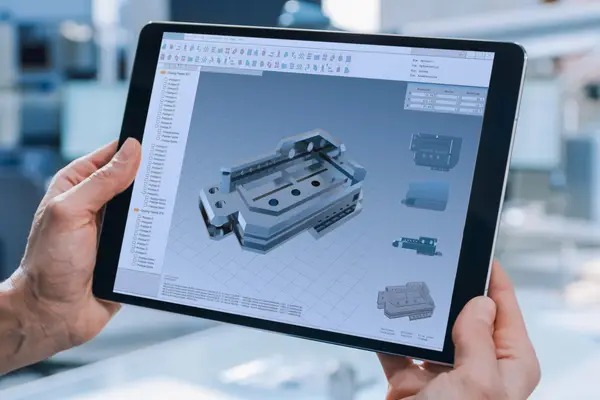India, with its booming economy and diverse industries, is a vibrant hub for global trade. From the aromatic spices of Kerala to the sophisticated software exports from Bangalore, goods flow in and out of the country at a staggering pace. Yet, few people stop to think about the intricate web of logistics that makes this possible.
At the heart of this complex system are freight forwarding companies in India. These businesses don’t just move cargo—they create opportunities, solve problems, and drive growth for companies looking to connect with global markets.
In this blog, we take a closer look at how freight forwarders have evolved beyond their traditional role and why they are now strategic partners for Indian businesses.
What Is Freight Forwarding? A Modern Perspective
Traditionally, freight forwarding was all about organizing the transportation of goods from one place to another. But today’s freight forwarding companies in India are much more sophisticated. They offer end-to-end solutions that cover every aspect of the supply chain, including:
- Customized Logistics Planning: Tailoring transportation strategies to meet specific business needs.
- Compliance Management: Navigating complex international trade regulations.
- Data Analytics: Using insights to optimize delivery routes and reduce costs.
- Risk Mitigation: Identifying and addressing potential disruptions proactively.
With supply chains becoming more global and complex, businesses need this level of expertise to remain competitive.
India’s Freight Forwarding Landscape: Opportunities and Challenges
India’s trade potential is massive, but so are the logistics challenges. Here’s a closer look at the key factors shaping the industry:
Opportunities
- Growing Export Sector: The government’s push for initiatives like Make in India has boosted exports.
- E-Commerce Explosion: As online shopping grows, so does the need for efficient logistics.
- Infrastructure Development: Projects such as Bharatmala and Sagarmala are improving road, rail, and port connectivity.
Challenges
- Regulatory Complexity: Changing import-export policies can be difficult to navigate.
- Infrastructure Bottlenecks: Despite improvements, road congestion and port inefficiencies remain concerns.
- Unpredictable Global Events: The COVID-19 pandemic highlighted vulnerabilities in supply chains.
Freight Forwarding Companies as Business Growth Partners
The role of freight forwarders has evolved from simple logistics coordinators to strategic business partners. Here’s how they drive growth for businesses:
- Market Expansion: By managing complex international shipping, freight forwarders help businesses tap into new markets.
- Cost Efficiency: Their expertise in route optimization and cargo consolidation reduces transportation costs.
- Risk Mitigation: From navigating regulatory hurdles to handling customs delays, freight forwarders reduce operational risks.
- Data-Driven Insights: Advanced analytics help businesses make informed decisions about their supply chains.
Technology Transforming Freight Forwarding in India
Innovation is at the core of the logistics industry, and technology is redefining how freight forwarding companies in India operate.
Key Technological Advancements
- Blockchain: Ensures secure and transparent documentation processes.
- AI and Predictive Analytics: Anticipates potential disruptions and optimizes operations.
- Digital Freight Platforms: Allow businesses to book and track shipments in real-time.
- Smart Warehousing: Automation improves efficiency and reduces errors.
These advancements are not just improving efficiency—they are also enhancing customer satisfaction by providing greater visibility and transparency.
Sustainability: The Green Future of Freight Forwarding
As environmental concerns grow, freight forwarding companies in India are adopting greener practices to reduce their carbon footprint.
Sustainability Initiatives
- Eco-Friendly Transport: Using energy-efficient vehicles for last-mile deliveries.
- Carbon Offsetting: Investing in projects that neutralize carbon emissions.
- Route Optimization: Minimizing fuel consumption through smarter transportation planning.
These initiatives align with India’s commitment to sustainable development and help businesses meet eco-conscious consumer demands.
Choosing the Right Freight Forwarding Company in India
Selecting a reliable freight forwarding partner can make a significant difference to a business’s operations. Here are key factors to consider:
- Industry Expertise: Look for companies with a strong track record in your sector.
- Global Network: A robust international presence ensures smoother cross-border operations.
- Technological Capabilities: Real-time tracking and data analytics are essential.
- Customer Support: Effective communication and problem-solving are crucial for time-sensitive shipments.
The Future of Freight Forwarding in India: Key Trends to Watch
The logistics landscape in India is rapidly evolving, and freight forwarding companies are at the forefront of this transformation. Key trends to watch include:
- Hyper-Local Deliveries: Meeting the growing demand for faster, last-mile delivery solutions.
- AI-Powered Operations: Enhancing decision-making and reducing operational bottlenecks.
- Collaborative Platforms: Fostering partnerships between freight forwarders, carriers, and technology providers.
- Sustainability as a Competitive Edge: Businesses will increasingly prioritize eco-friendly logistics solutions.
Conclusion: Freight Forwarders as Catalysts for Growth
Freight forwarding companies in India are no longer just service providers—they are catalysts for growth, innovation, and sustainability. As businesses navigate the complexities of global trade, these companies offer the expertise, technology, and strategic insights needed to thrive.
For companies looking to stay ahead in an increasingly competitive market, partnering with a forward-thinking freight forwarder is not just a logistical choice—it’s a strategic investment in their future.



